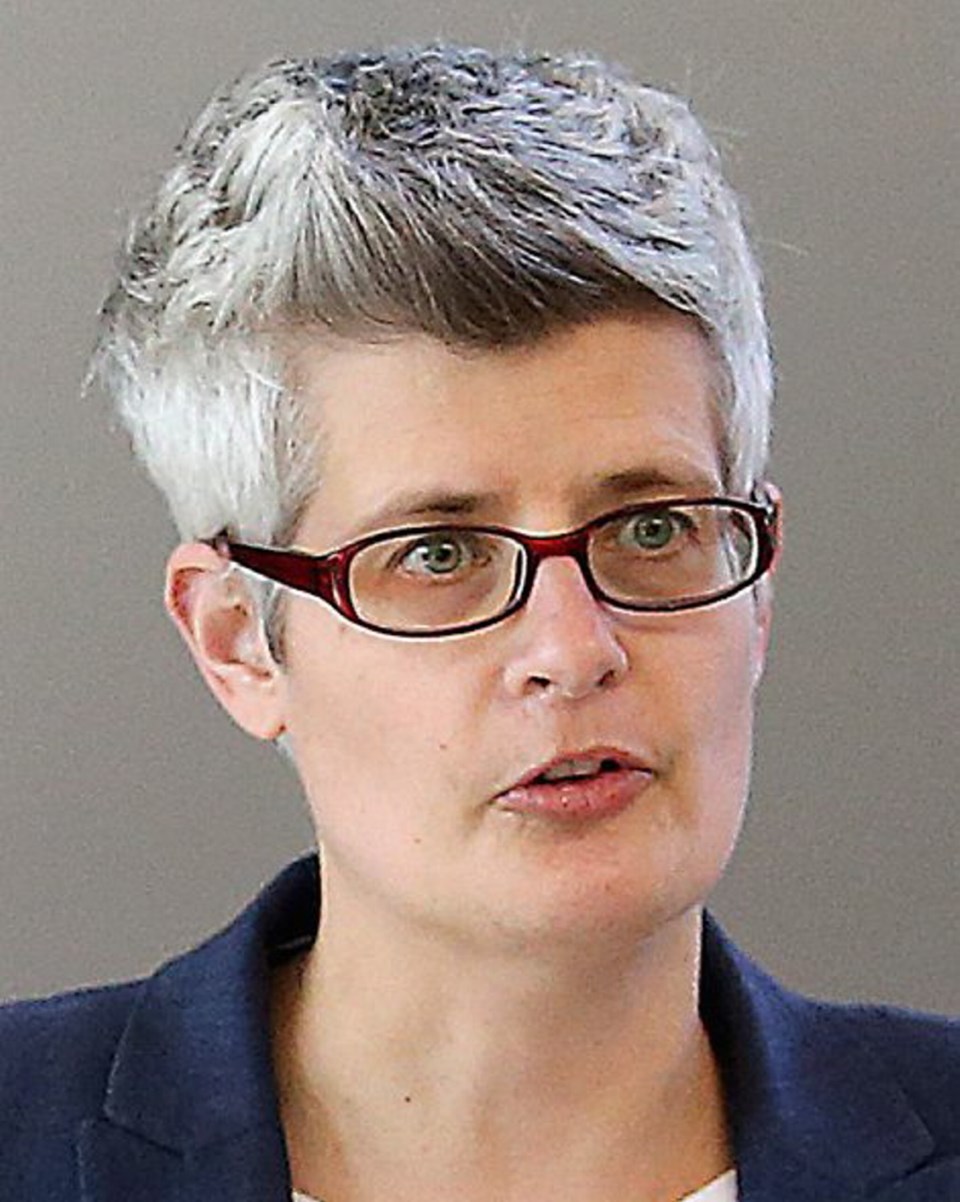Victoria Mayor Lisa Helps wants the B.C. government to use its emergency powers to requisition empty hotel and motel rooms for people without homes during the COVID-19 outbreak.
In a motion going to committee of the whole today, Helps and councillors Sarah Potts and Jeremy Loveday urge the province to take immediate action to get people off the streets or, failing that, to allow the city to declare a local state of emergency.
Helps told reporters Wednesday that the city has “hit a wall” after working hard on the issue with B.C. Housing and Island Health for the past month.
She said B.C. Housing requires increased powers to secure the rooms, while Island Health needs more resources to provide supports to people once they move off the street.
“It is absolutely naive to think that COVID-19 will not hit the unsheltered population in our city, and when it does, those people are going to be using the same hospital beds and acute-care beds that everybody else will,” she said.
Helps has appealed directly to provincial health officer Dr. Bonnie Henry as well, writing that Victoria is in a “crisis situation.”
Shelters were forced to reduce their numbers to allow for physical-distancing, so now people with mental-health and addiction challenges are living in more than 120 tents crowded together on Pandora Avenue, Helps says in the April 4 letter, a copy of which was included in council’s agenda package.
The mayor states that although the city and B.C. Housing have secured nearly 200 hotel rooms for people without homes, hotel owners have made it clear that they don’t want people with mental-health and addiction problems staying in them.
“Maybe the province should issue an order to all motel owners noting that they must make their facilities available to B.C. Housing for whatever purpose B.C. Housing deems necessary,” she writes.
Meanwhile, the city has established a temporary tenting site at Topaz Park, which is now at capacity.
Helps says it’s “not good enough” to be sheltering people outside in the midst of a pandemic.
B.C.’s Ministry of Municipal Affairs and Housing issued a statement that did not directly address the issue of using emergency powers to requisition hotel and motel rooms.
Instead, the ministry said B.C. Housing continues to negotiate with motels and hotels to secure more spaces and expects to finalize additional contracts in the coming weeks.
The ministry added that it’s trying to find a site for an emergency-response centre that will provide more spaces.
“Once a site has been secured, we’ll work with Island Health and our partners to identify and assess potential residents.”
A number of non-profit agencies and nurses in Victoria, however, say the current approach isn’t working. The agencies wrote a letter to provincial ministers this week, warning about the “dire situation” facing people without homes and advocating the emergency requisition of hotel rooms or the purchase of permanent housing.
“We are four weeks into COVID-19 restrictions and do not yet have the necessary resources to mobilize a response for those experiencing homelessness or at risk of homelessness to ensure the same health protections available to others,” says the letter from the SOLID Outreach Society, AIDS Vancouver Island and Peers Victoria Resources Society.
SOLID spokesman Mark Willson said the current process of B.C. Housing negotiating with hotels and motels to secure rooms “just isn’t getting us anywhere.”
Even if the rooms are secured, Willson said local non-profits don’t have the resources to provide the necessary supports to people living there or at encampments across the city.
“We’re feeling that the province needs to let us know how we can do our jobs right now to make sure everyone’s safe, because the fear is palpable at this point,” he said.
“We’re dealing with a really vulnerable population that doesn’t necessarily have anywhere to go, and doesn’t necessarily have the proper supports.”
Bernie Pauly, a professor of nursing at the University of Victoria and one of the signatories to the letter, said it’s only a matter of time before the virus hits the street community the same way it arrived in prisons and long-term-care homes.
“I really think time is running out and we’re going to end up chasing the pandemic in these overcrowded settings,” she said.
Once the virus arrives, it will be difficult to contain, she said, because many of the people have chronic health conditions and don’t have their own bathroom or a place to self-isolate.
“We’ve had prime ministers and many people saying: ‘No one will be left behind,’ ” she said. “And I think as the clock ticks, people are being left behind.”



